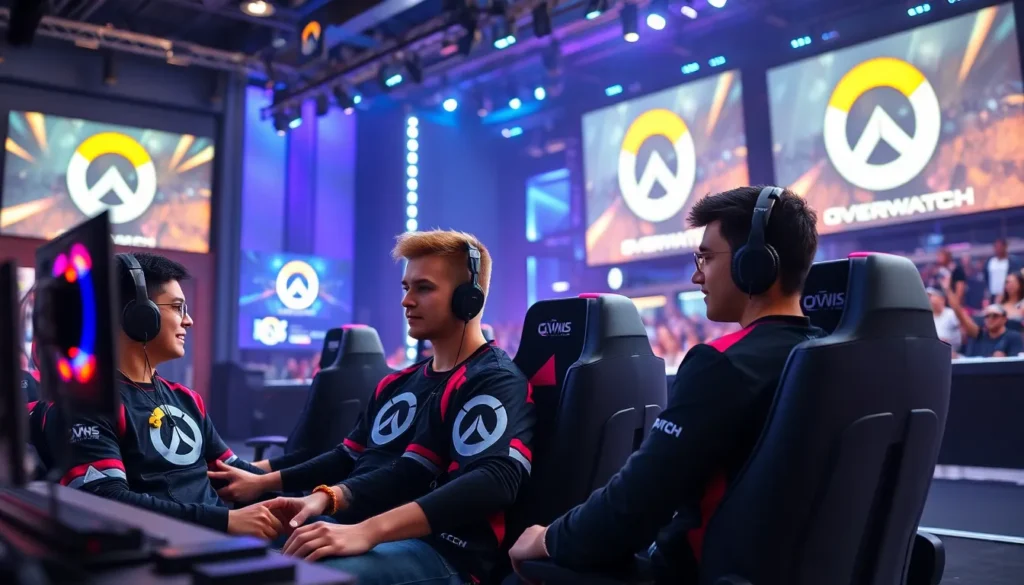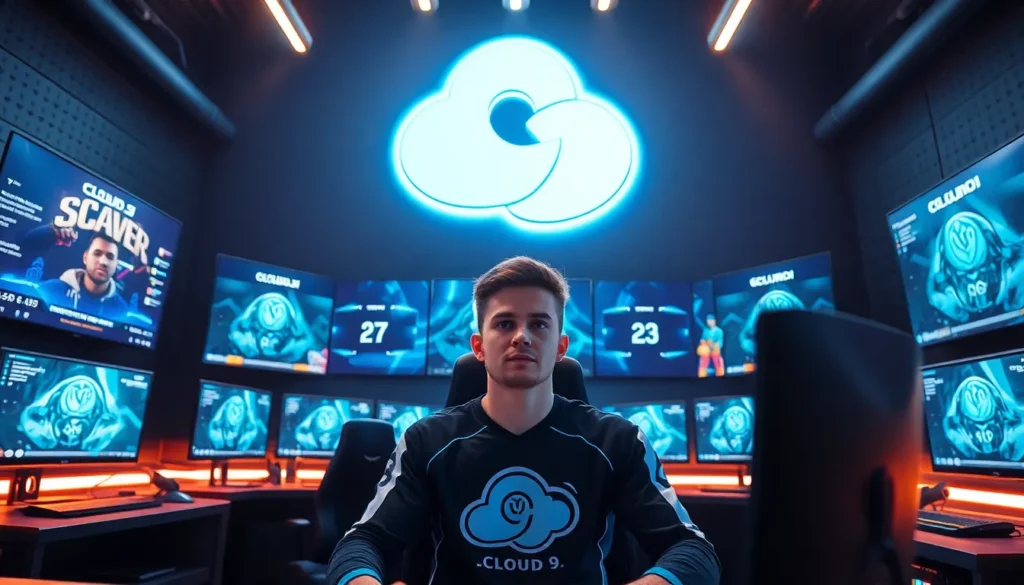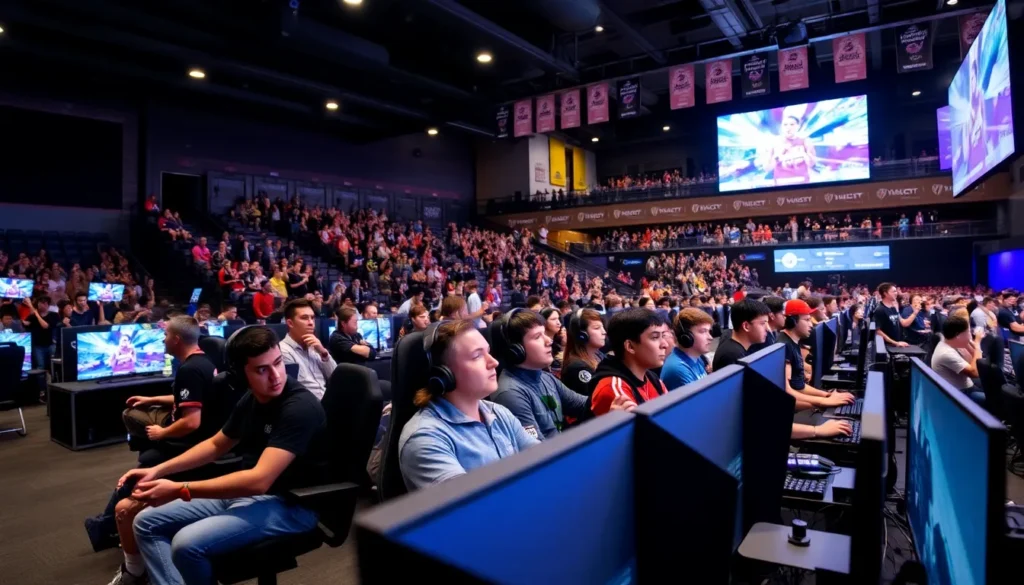Table of Contents
TogglePicture this: a digital battlefield filled with heroes, lunatic ultimates flying around, and enough teamwork to make a band of ants look like amateurs. Welcome to the world of Overwatch esports. In the fast-paced arena of competitive gaming, Overwatch has carved out a niche that blends strategy, precision, and a pinch of chaos, all orchestrated by talented teams. In this text, we’re diving into why Overwatch esports teams are not just groups of players, but tightly woven units with a common goal, their quest for glory. Grab your headset, and let’s unpack the variables that matter in the electrifying atmosphere of this esports phenomenon.
Overview of Overwatch Esports

Overwatch has changed the esports landscape since its debut in 2016. This team-based first-person shooter quickly rose to prominence, challenging the status quo with its unique blend of fast-paced gameplay and diverse character roster. What sets it apart? The synergy and tactics of a well-coordinated team significantly influence match outcomes. The composition of a team is pivotal, as different heroes bring various abilities to the table, eventually affecting strategy, game flow, and victory chances.
Importance of Team Composition in Overwatch
Choosing characters in Overwatch is more than a mere preference: it is a tactical decision. Different hero abilities can counter or synergize with each other, creating endless strategies teams can use. A balanced team typically features a mix of damage dealers, supports, and tanks. Such a composition allows for a dynamic approach that can adapt to varying opponents. Without thought-out compositions, even the most skilled individual player can struggle, underscoring the essence of teamwork.
Overview of the Competitive Structure
The structure of Overwatch esports is meticulously organized to promote competitive integrity while maximizing engagement. This landscape features several key tournaments and leagues, culminating in major events like the Overwatch League (OWL), which draws global attention. Teams compete in regular seasons, battling for glory and a chance to prove their mettle during playoffs.
Numerous tiers exist in the competitive scene, from grassroots tournaments to prestigious leagues. These tiers foster new talent while providing established teams a platform to showcase their skills. The ladder system encourages participation, drawing both amateur players and seasoned professionals into a thriving ecosystem.
Top Overwatch Esports Teams
Every Overwatch fan has their favorites, and knowing which teams shine brightest can enhance the viewing experience. Over the years, certain teams have emerged as powerhouses, consistently demonstrating why they deserve a top spot.
Team Performance and Achievements
For instance, teams like San Francisco Shock and Dallas Fuel have become household names, often topping the leaderboard. Their success stems not just from individual talent, but from cohesive teamwork and revolutionary strategies. These teams have not only dominated their matches but have also amassed numerous championships, solidifying their legacies.
Notable Players in Overwatch Esports
Individual talent often shines brightest within these teams. Stars like Jae-Hyeok “Carpe” Lee and Matthew “Super” DeLisi have become synonymous with excellence in Overwatch. Their performances don’t just influence matches: they inspire fans and upcoming players alike. With such talent on display, the excitement for each match grows, drawing in new viewers eager to witness greatness.
Challenges Faced by Overwatch Teams
While success may seem like it comes easily to top teams, the reality is filled with hurdles. Staying on top requires adapting to ever-evolving game mechanics and strategies. With frequent patches and hero balancing, teams must continuously refine their approaches to maintain competitive edges.
Also, burnout is a legitimate concern among players. The relentless pace of competition can lead to mental fatigue, making psychological resilience just as vital as technical skill. Keeping morale high while ensuring a consistent practice schedule is often easier said than done.
The Future of Overwatch Esports
So, what does the future hold for Overwatch esports? As the gaming industry continues to expand, the potential for Overwatch remains bright. Developers actively engage with the community, frequently introducing new content and updates that keep the game fresh. Future seasons promise to deliver even more exciting formats, enhancing viewer experience.
Also, with increasing sponsorships and partnerships, there’s a solid financial foundation supporting Overwatch esports. This influx of resources can lead to improved production quality, better marketing efforts, and, eventually, a larger fan base. It’s clear that Overwatch esports teams are poised for growth and inevitable success.






